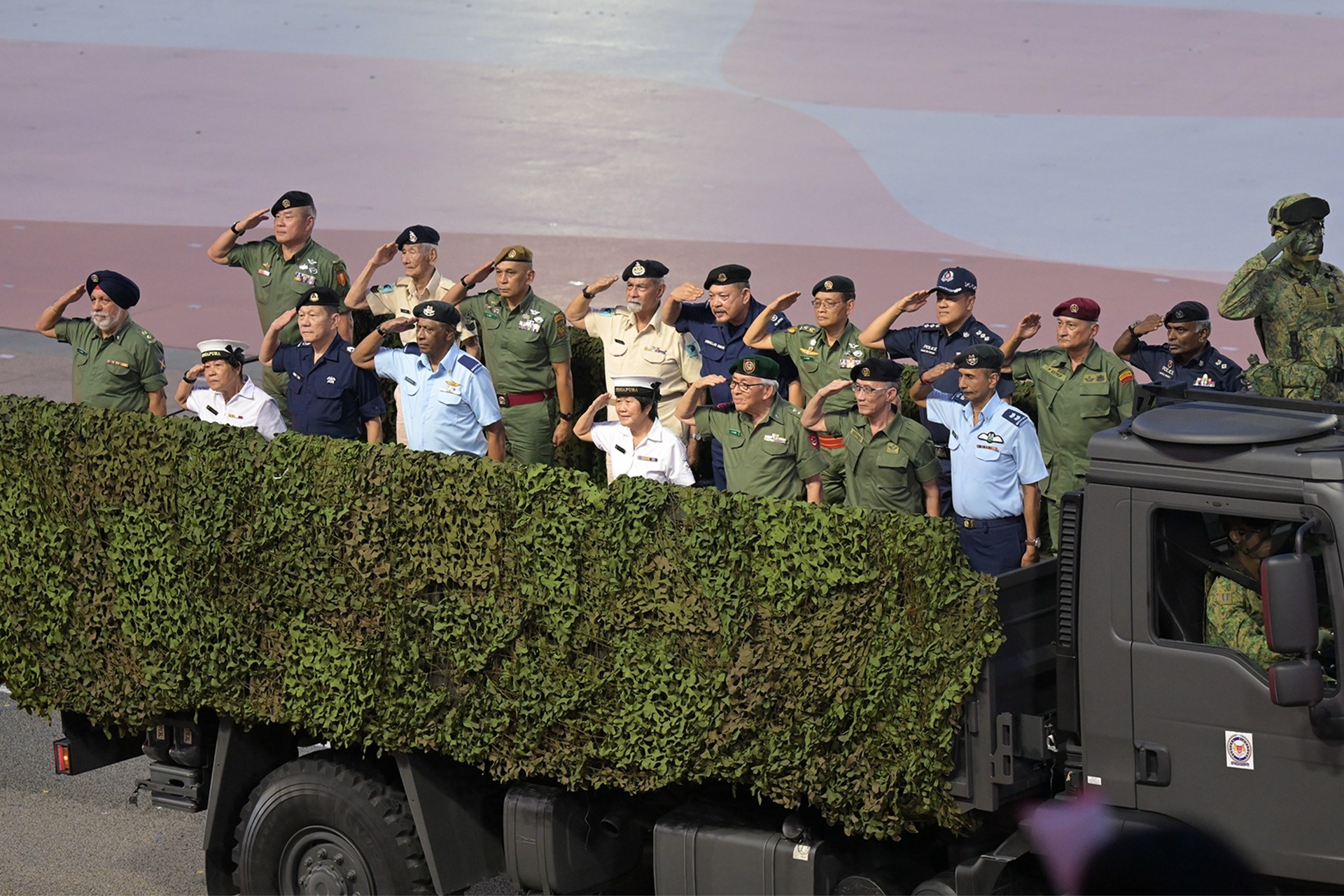PEOPLE
SAF PERSONNEL RECOGNISED FOR ROLE IN BUSHFIRE RELIEF, COUNTER-TERRORISM
14 Dec 2021
About 90 Overseas Service Medals were awarded to Singapore Armed Forces (SAF) personnel for their contributions overseas.
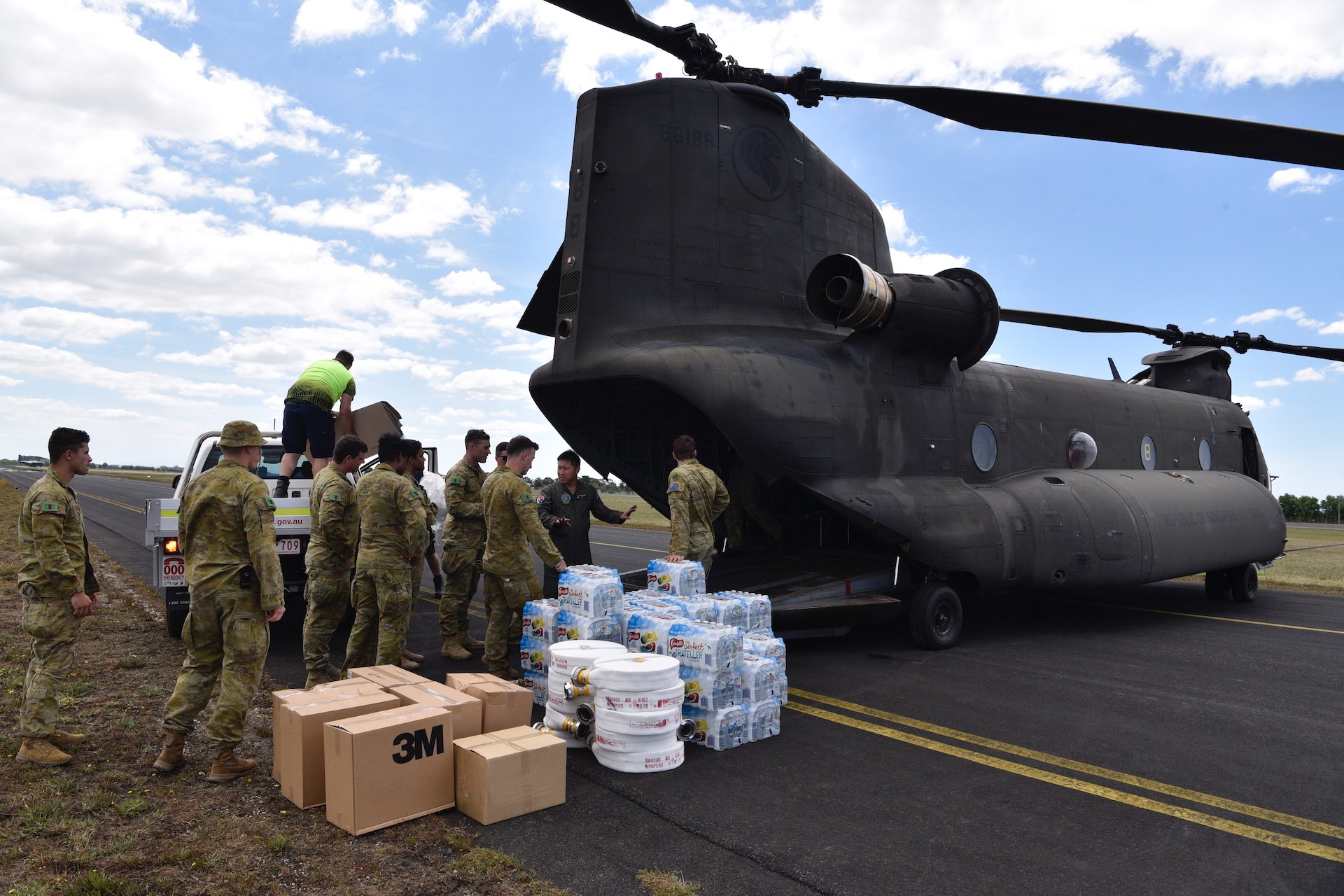

It was in the evening of 3 Jan 2020 when the servicemen and women of the Republic of Singapore Air Force (RSAF)'s Oakey Detachment in Queensland, Australia were activated to support the local bushfire relief efforts.
They did not know how long the deployment would last, and had less than a week to move out from Queensland to Victoria.
"Once we arrived on theatre, we were running hot to support the requirements with the Australian Defence Force (ADF)," recounted Lieutenant Colonel (LTC) Roy Chew, then Oakey Detachment Commander, as well as Mission Commander for the bushfire relief operations.
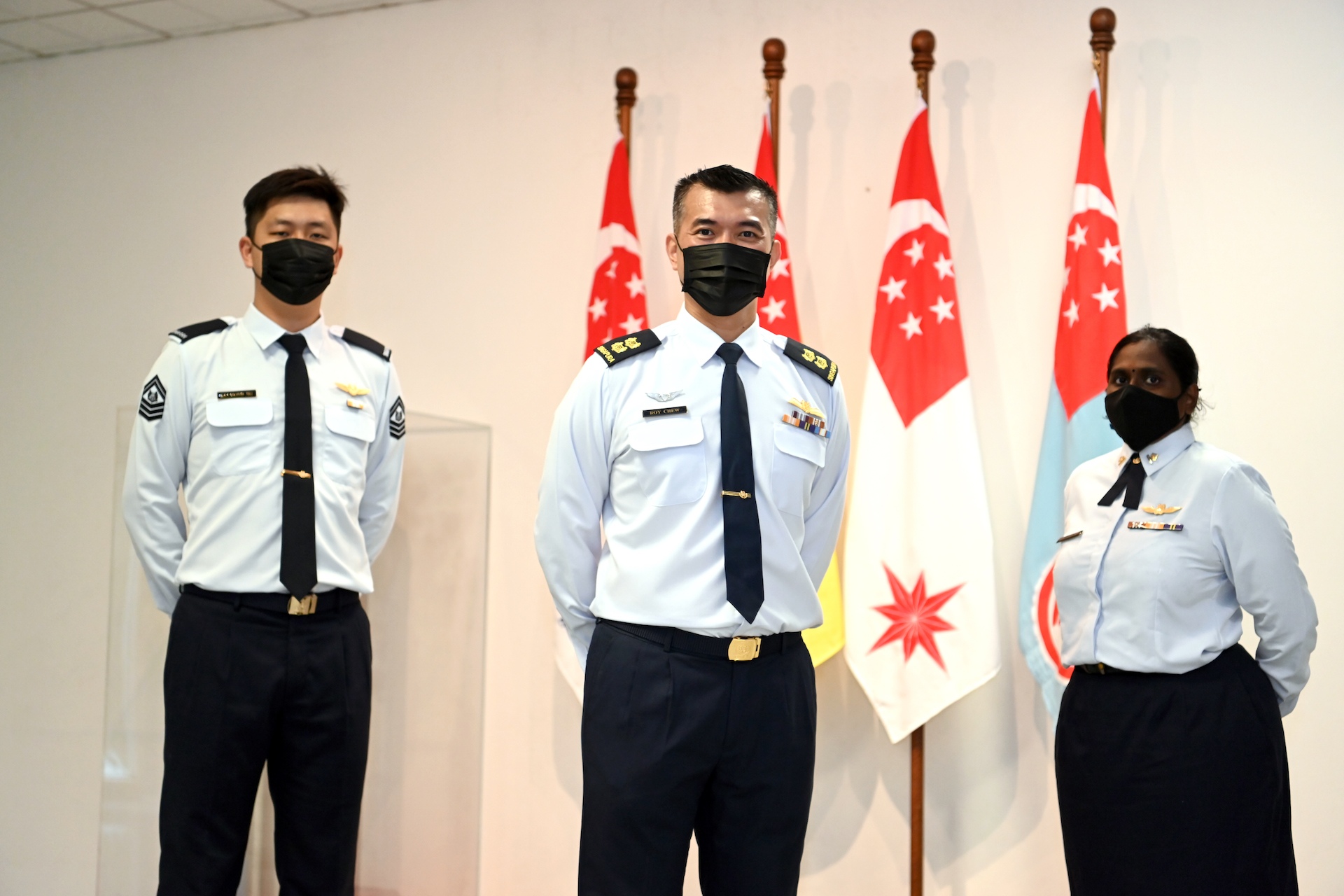
With two CH-47 Chinook helicopters, the crew assisted in carrying emergency service personnel – including ADF troopers, police forces and firefighters – to support relief efforts, as well as in evacuating civilians.
They also air lifted supplies such as food, fuel and generators to communities living in the mountainous areas affected by the fire.
Eventually, the crew stayed in Victoria for a month to help with the relief efforts.
"Our unit worked together with the ADF's 5th Aviation Regiment, Chinook Squadron. We combined our resources and shared a common ops room, and that allowed us to integrate very closely with them and conduct our mission in a very tight manner," said LTC Chew, 44.
In total, the RSAF personnel delivered close to 73 tons of firefighting equipment and relief supplies, and transported more than 260 emergency service personnel and evacuees.
Their contributions were recognised at the SAF's Overseas Service Medal presentation ceremony held at the Ministry of Defence on 14 Dec.
A total of 71 medals were awarded to personnel involved in the Australia bushfire relief efforts; while another 18 medals were awarded to personnel who supported the multinational coalition efforts against the Islamic State in Iraq and Syria (ISIS).
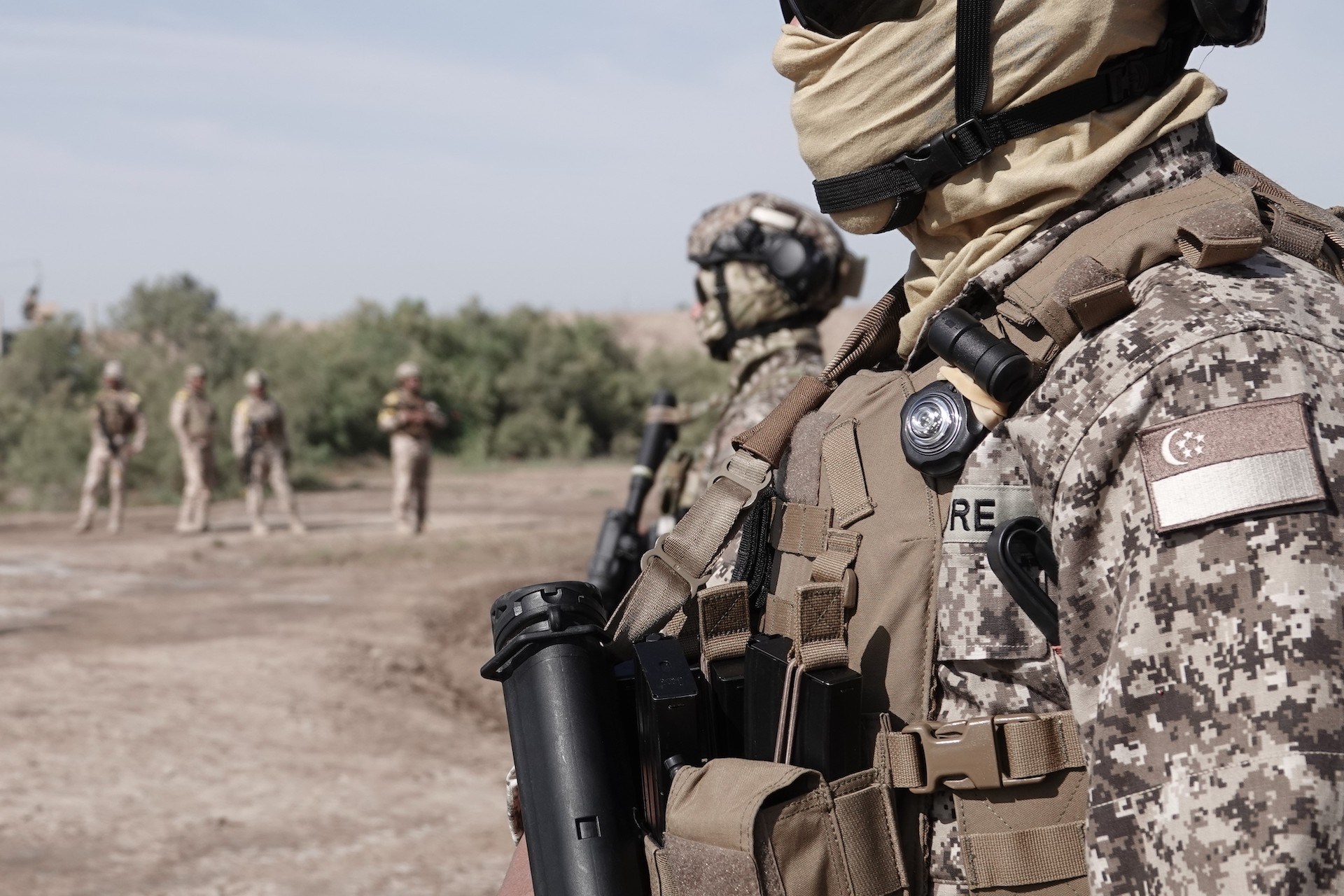
Speaking at the award ceremony, Defence Minister Dr Ng Eng Hen thanked the personnel for their dedication and commitment during their overseas deployments.
He noted that the SAF's efforts in the Middle East has lasted since 2007 – with its contributions to the International Security Assistance Force in Afghanistan from 2007 to 2013, and its joining of the multinational coalition against ISIS from 2014.
"In those 13 years that the SAF spent in Afghanistan and Iraq, we stemmed the rising tide of terror networks in our part of the world and gave time for the SAF to build up its capability here, even as you men and women are on the frontlines directly engaging with the enemy during your deployments there," said Dr Ng.
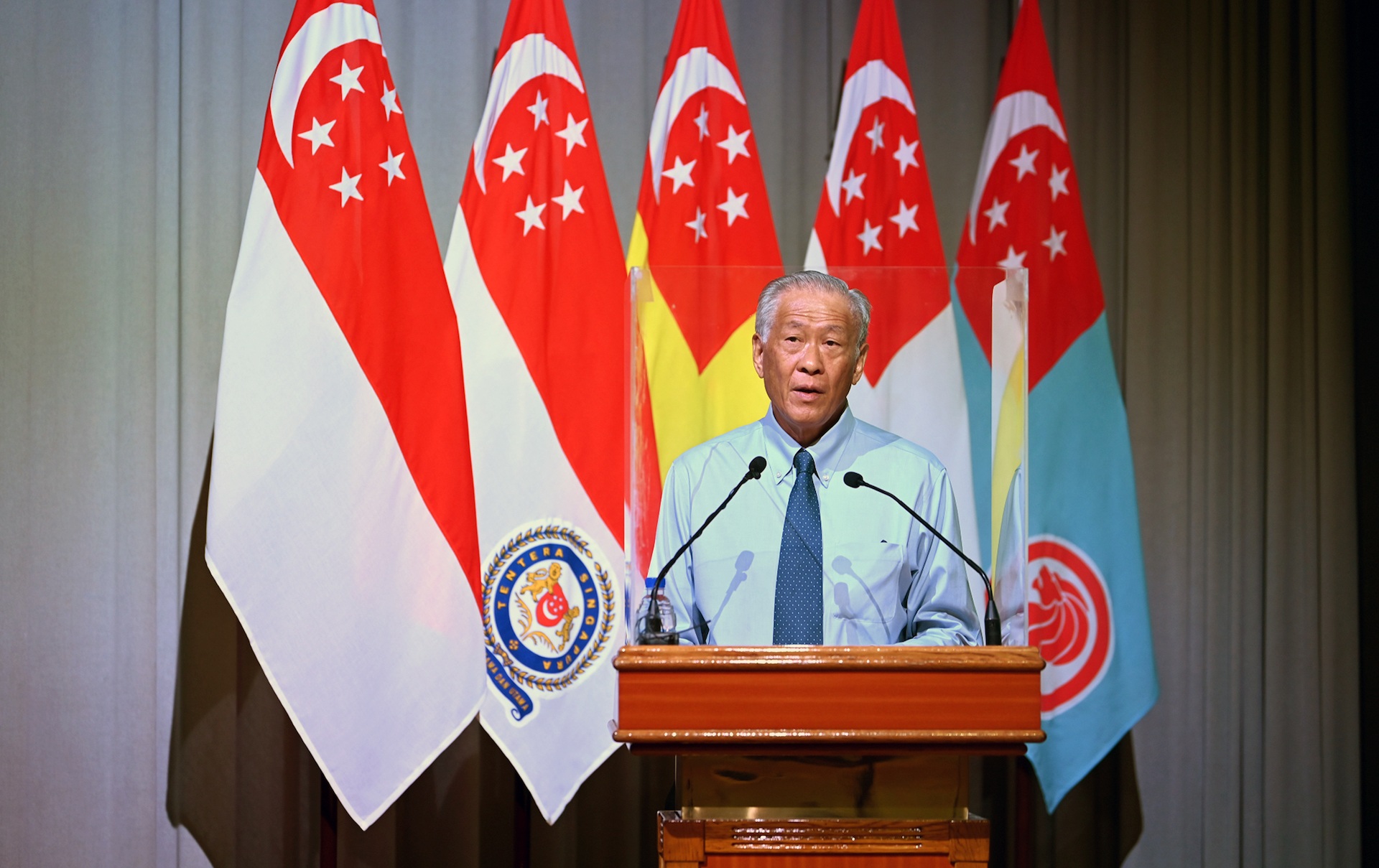
He also emphasised efforts by the personnel who supported Australia in dealing with the bushfires last year, which razed over 120,000 sq km of land.
Dr Ng said: "Then-Australian Defence Minister Linda Reynolds personally expressed how touched they were with our assistance.
"It is not just that our detachment there stepped up. The energy we poured into it, the way we worked as if it was a fire in our own homes… That left a deep impression on the ADF and, indeed, Australians in general."
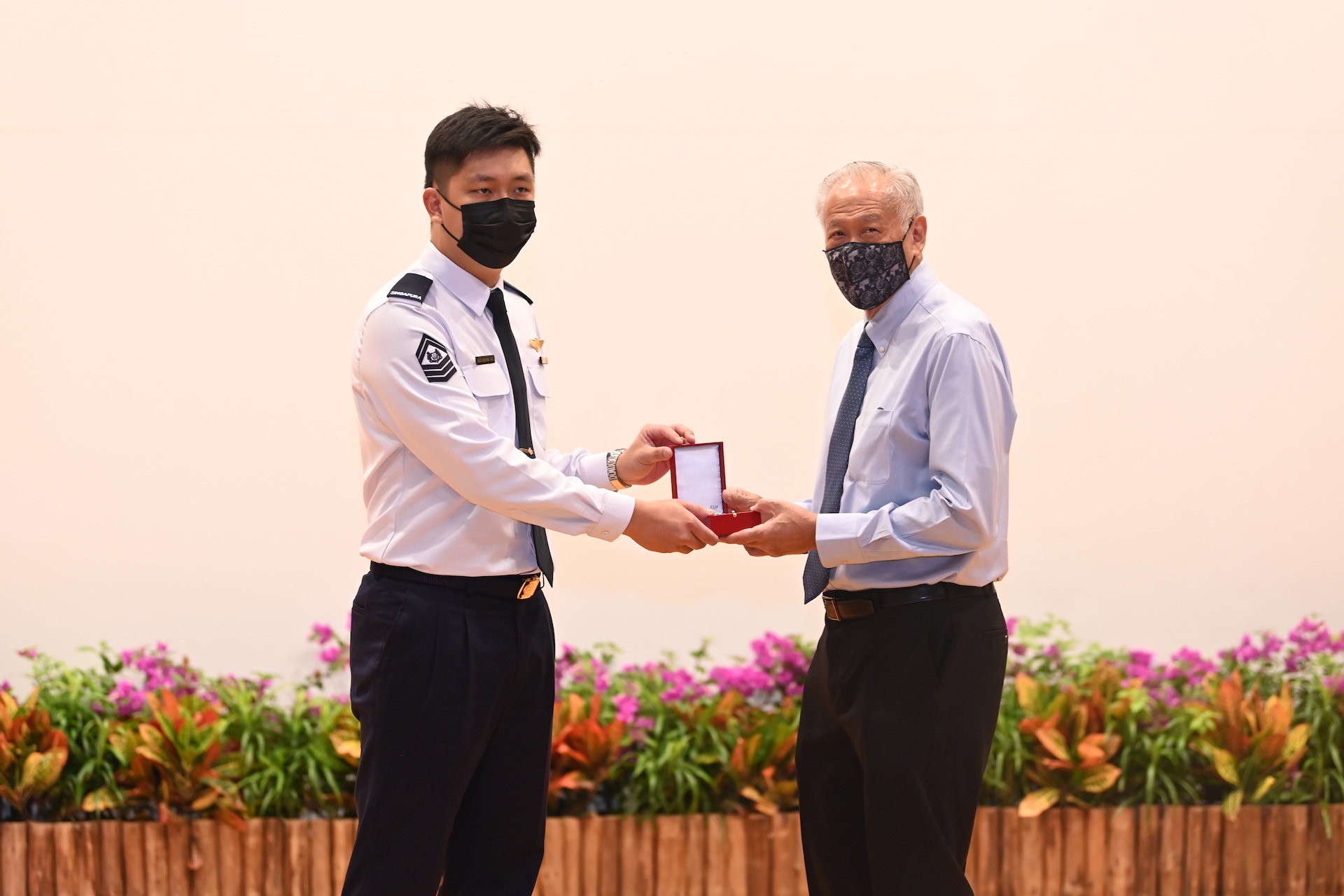
To Air Force Engineer Military Expert (ME) 2 Gayathiri D/O R Thamilarasu, one of the biggest challenges of the bushfire relief efforts was to pull together resources for the deployment at short notice.
As the Logistics Equipment In-Charge, she was not just responsible for the serviceability of the aircraft equipment, but also for ensuring that the crew had whatever they needed to last their month-long deployment.
ME2 Gayathiri, 37 – who also participated in anti-piracy operations in the Gulf of Aden back in 2010 – said that the crew accounted for this by planning ahead for spares and supplies.
"When we're going for ops like this, we won't be able to place a demand for spares and expect it to be delivered a week later. So coming in prepared for any situation is very important," she said.
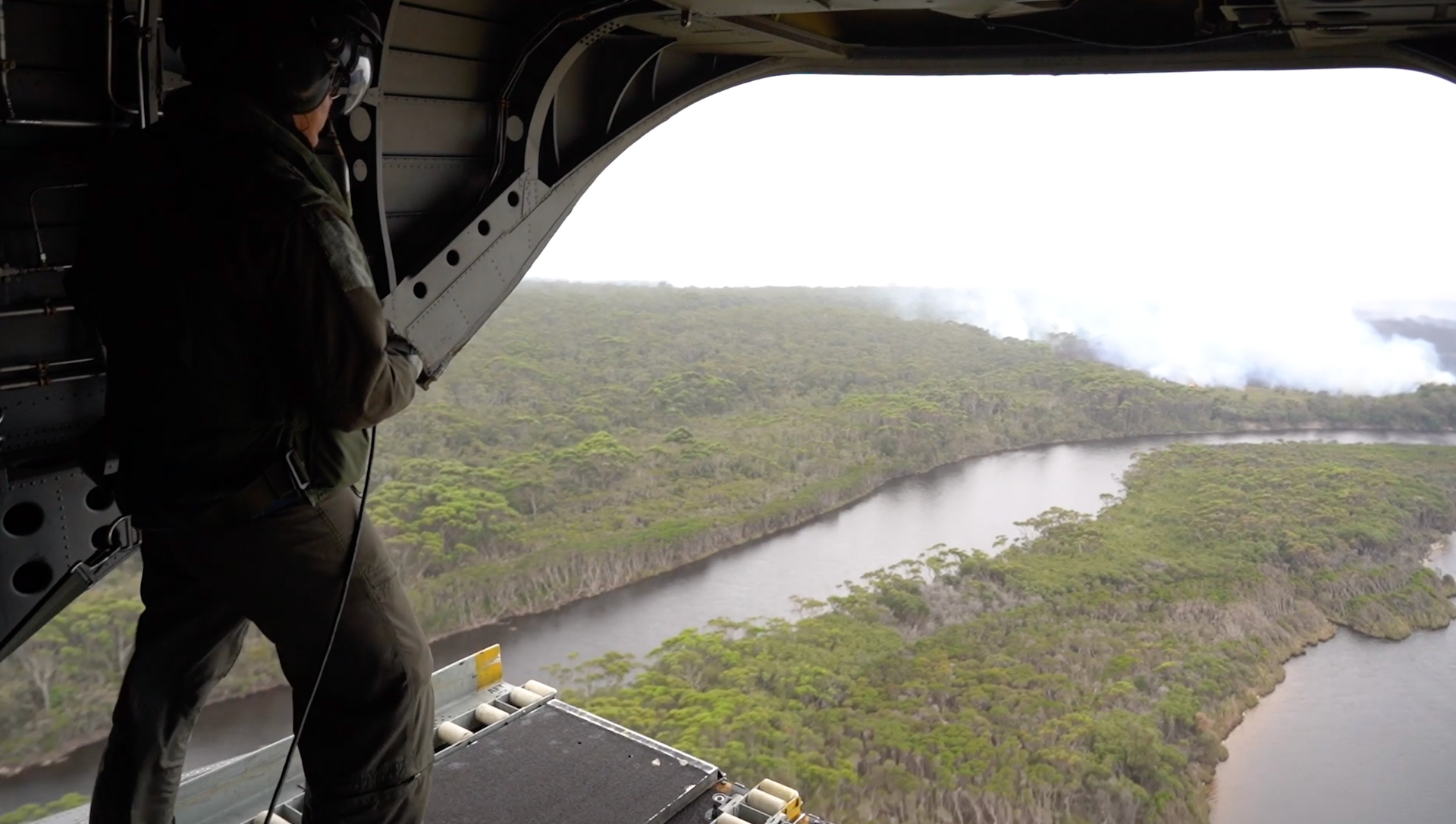
For her teammate Staff Sergeant (SSG) Kelmond Ng, his role as an Air Crew Specialist meant acting as an extra pair of eyes for the pilot in looking out for flight hazards.
This was especially taxing as flight time could last up to eight hours, over back-to-back flying days.
"We were challenged in our adaptability as we had to work on a very tight schedule, with the ADF troops and Red Cross volunteers. The area of operations was also mountainous, so there was plenty of hazards to take note of," said the 27-year-old.
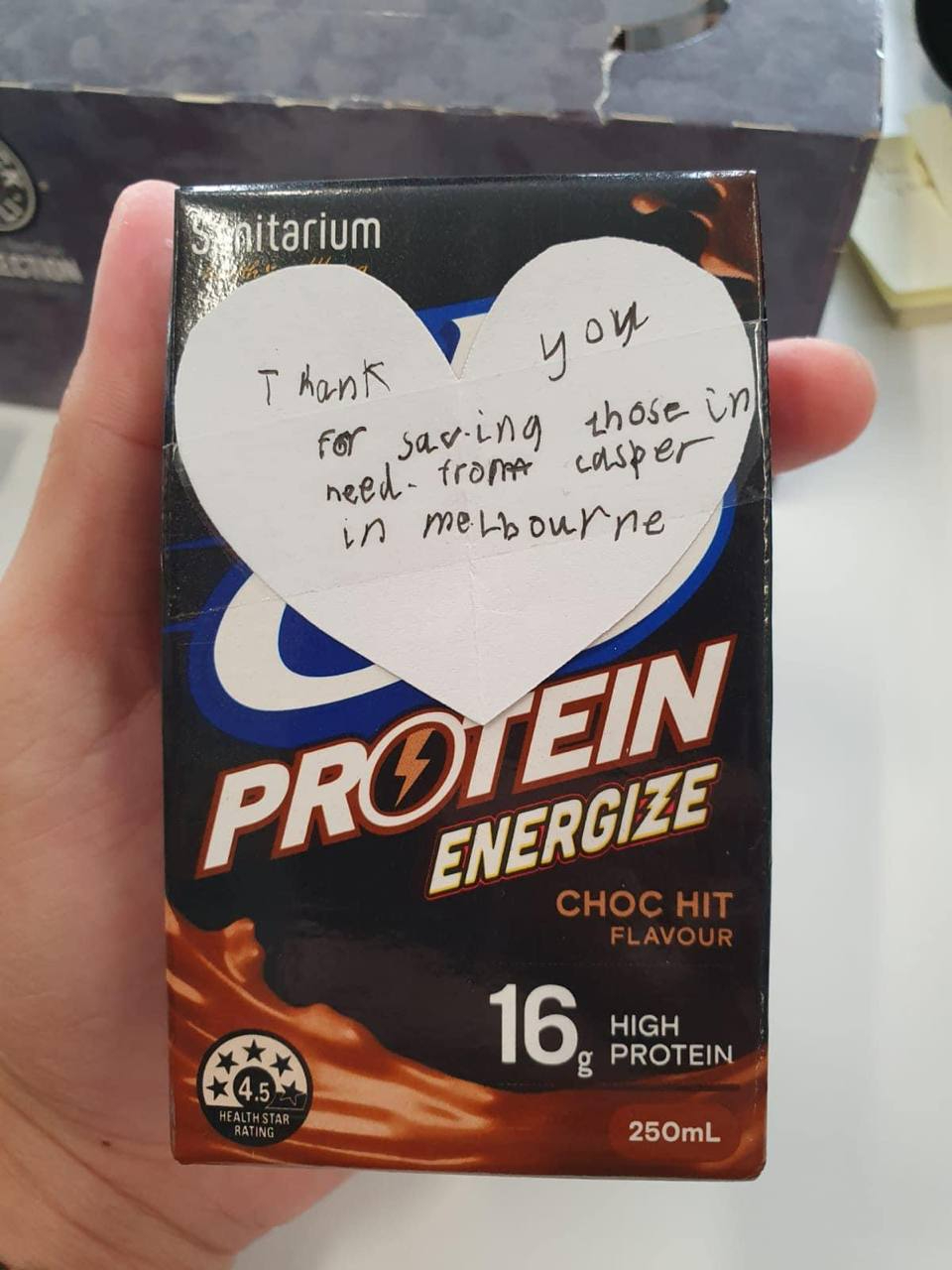
SSG Ng, who was also the mission scheduler, remembers a particular relief supply mission where the crew delivered food and water to a mountain-side region.
"While I was unloading the cargo with the ADF personnel, one little girl ran over and hugged me. That was really very touching and made me feel the importance of our mission there," he said.
"It was one of the things that kept us going even through the long hours of our flights and mission."
ALSO READ IN PEOPLE
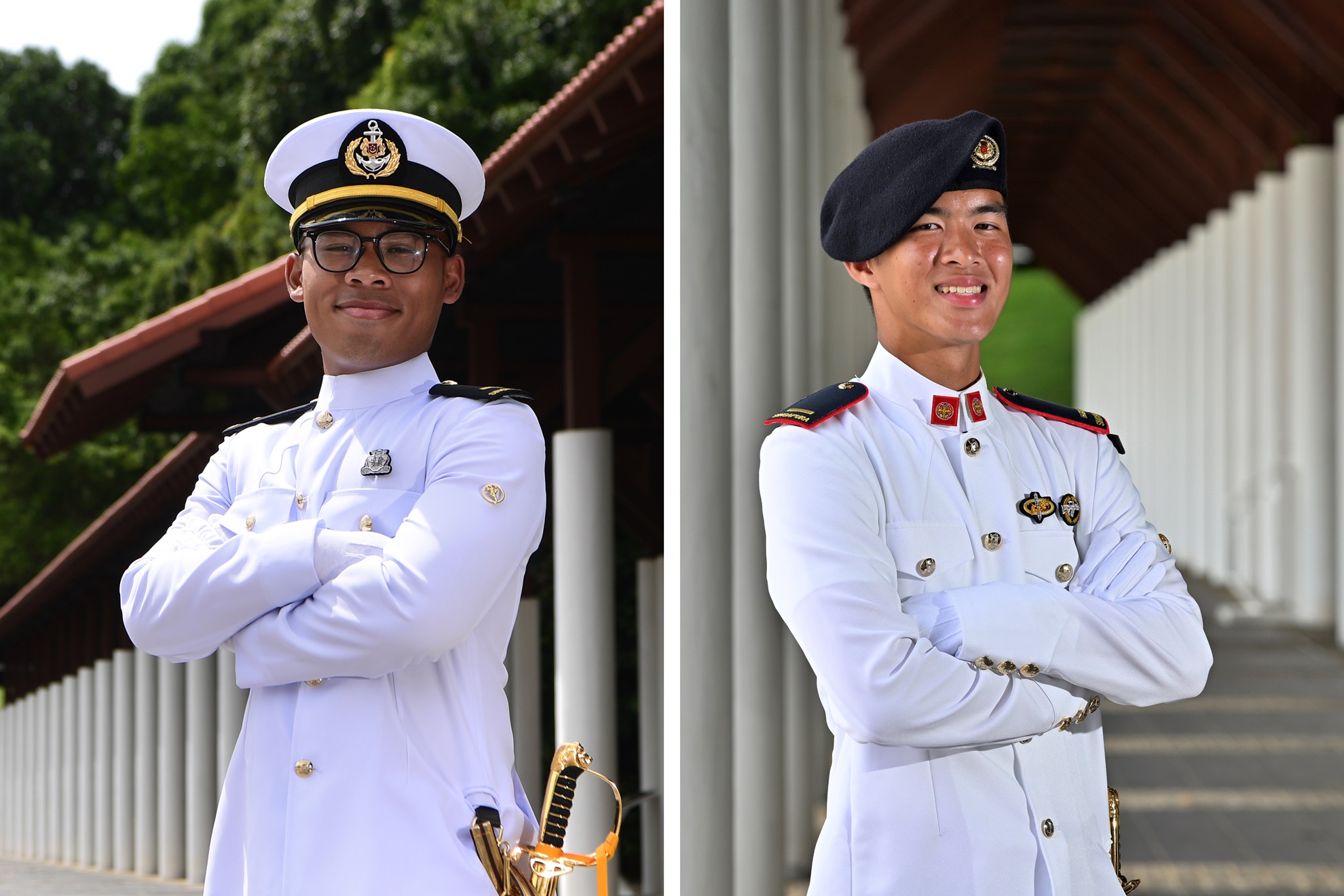
Rising above the tide & stepping forward to lead
13 Dec 2025
They’re among the SAF’s latest batch of officer graduands this year. Meet 2LT Mohamad Wira Kuriniawan and 2LT Ryan Ong, who will be heading to the Navy’s 180 Squadron and 1st Battalion, Singapore Guards respectively.
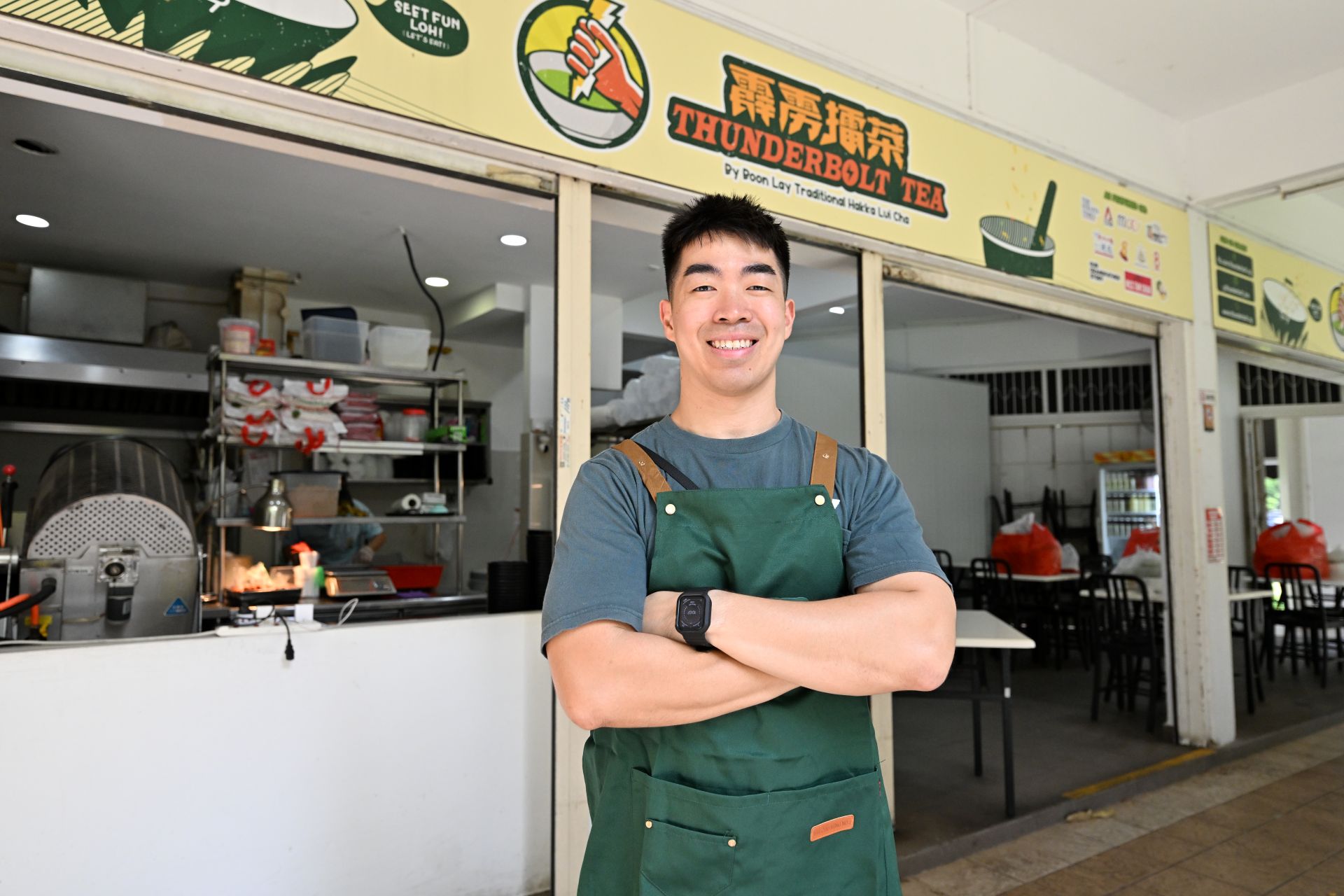
Guardian of the skies, guardian of family heritage
08 Dec 2025

Father & son, bonded by service
02 Dec 2025


